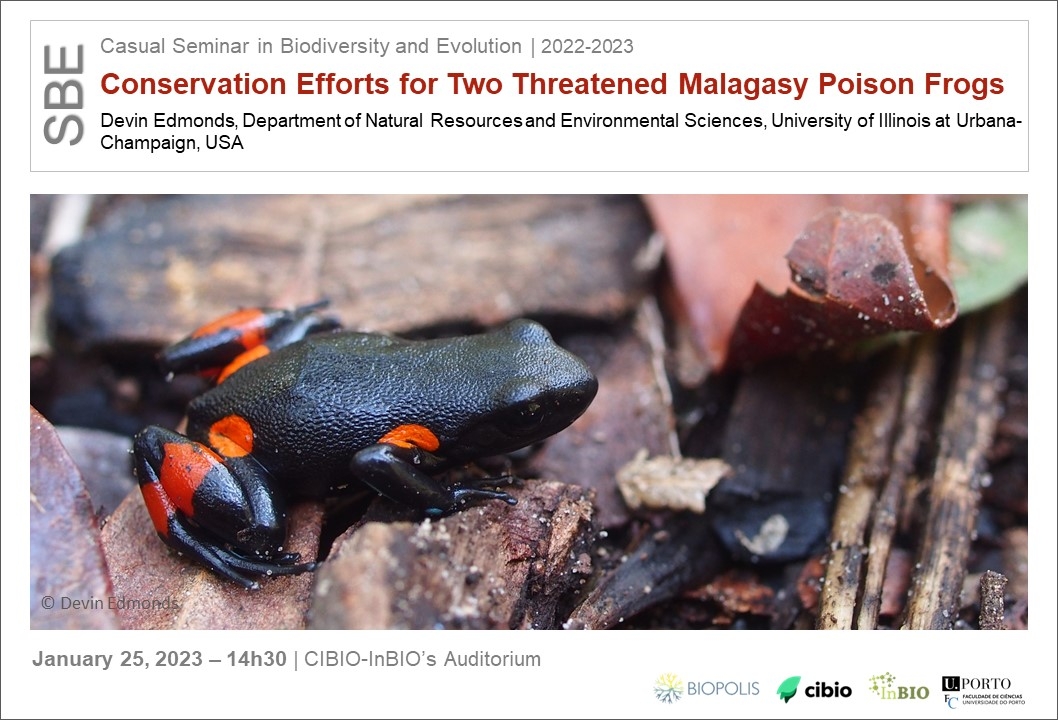Conservation Efforts for Two Threatened Malagasy Poison Frogs

Devin Edmonds has been working on conservation efforts in Madagascar for more than a decade. During 2010-2016 he helped launch a breeding facility for threatened frog species with the local Andasibe-based community group Mitsinjo. Later, he worked as the Conservation Program Manager for the Lemur Conservation Foundation. He earned a master’s degree in 2020 studying the demography of two small isolated Ornate Box Turtle (Terrapene ornata) populations. Currently, Devin is pursuing a Ph.D. at the University of Illinois focused on filling the research needs in a conservation strategy for the threatened Malagasy frog Mantella cowanii. He has written three books and authored or co-authored over 20 peer-reviewed publications. To recognize his contributions towards Madagascar amphibian conservation, the frog Stumpffia edmondsi was named in his honor.